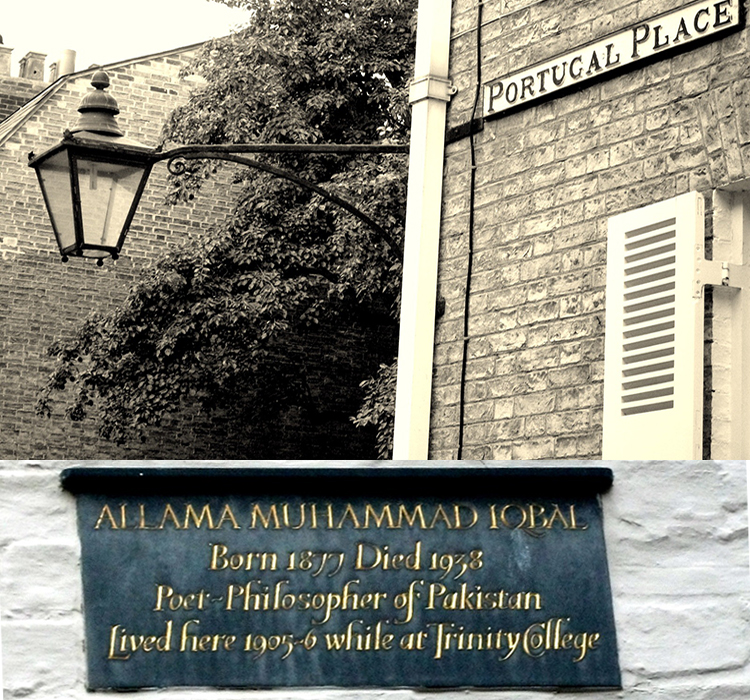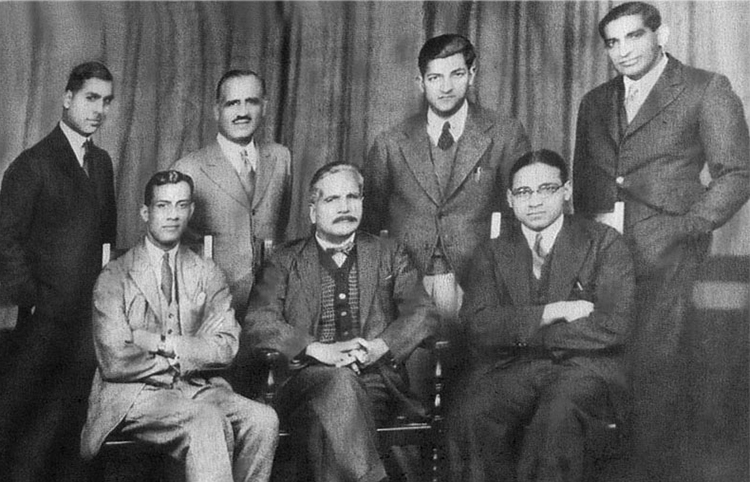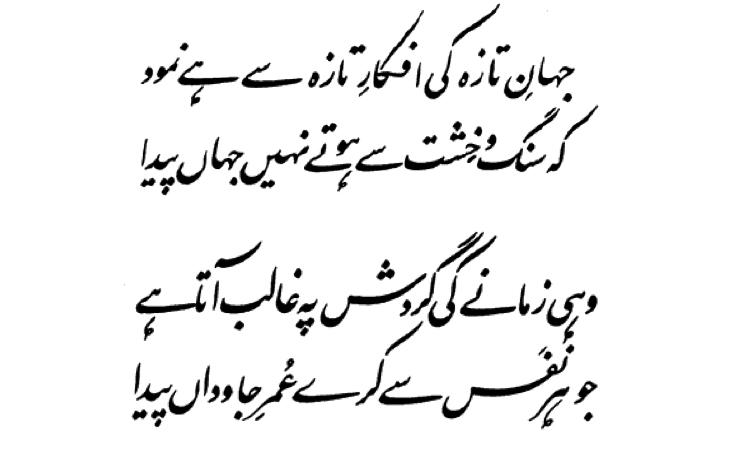
Written by: Haniya Yameen
Posted on: November 08, 2015 |  | 中文
| 中文
Allama Mohammad Iqbal
Perhaps it is not possible to state definitively how Iqbal became the person he was, but we can surely see traces of depth and intuitiveness in his personality which were shaped and nurtured by those around him. Although Iqbal’s parents never received formal education, they created an environment which pushed the young Iqbal to be thoughtful and reflective from an early age. His father once advised him to read the Qur’an as though it was being revealed to him directly from God, which shows the unique thinking attitude that Iqbal began to cultivate from a young age.

His intellectual spark was recognized by Sayyid Mir Hassan, a renowned scholar of religion and literature at a local madrassah, who encouraged Iqbal to join Sialkot’s Scotch Mission College. After obtaining the Faculty of Arts diploma in 1895 in Sialkot, he moved to Lahore to join the Government College, where he obtained a BA in 1897 studying English, Philosophy and Arabic, followed by an MA in Philosophy in 1899. At the Government College, Iqbal’s intellectual acumen was recognized by Professor Thomas Arnold who convinced him to pursue his higher studies abroad, after which Iqbal followed him to Trinity College of Cambridge. Within a course of three years, Iqbal obtained three professional degrees – BA from Cambridge in June 1907, PhD from Munich University in November 1907, and a law degree from Lincoln’s Inn in July 1908 – a testament to his extraordinary intellectual abilities.
Iqbal’s studies in the West gave him a unique edge over other thinkers, for he was able to observe first-hand the scientific development of the West, get exposed to Western thought and reflect on the state of affairs of his community. Through a careful study of intellectual and literary giants such as Rumi, Goethe and Nietzsche, Iqbal was able to bring together and draw from both Eastern wisdom and Western knowledge, a synthesis that was unheard of at the time. Many of these characters appear in thought or as symbolic persons in Iqbal’s work; an example is the Jawid Namah, in which Rumi becomes Iqbal’s guide, leading him to higher levels of spiritual illumination.

Iqbal was well-versed in several languages including Arabic, Persian, German, Punjabi, Urdu and English, and his corpus reflects this diversity. Bang-i Dara (Sound of the Caravan Bell), Zarb-i Kalim (The Stroke of Moses), Armaghan-i Hijaz (The Gift of the Hijaz) and Bal-i Jibril (Gabriel’s Wing) are poetic works in Urdu, whereas some Persian works are Asrar-i Khudi (Secrets of the Self), Rumuz-i Bekhudi (Secrets of Selflessness), Jawid-Namah (The Poem of Eternity), among others. Among his major prose works in English is the Reconstruction of Religious Thought in Islam, which is a compilation of lectures delivered in several Indian cities in 1929.
Although Iqbal started poetry with the usual themes of love, longing and separation, he soon matured as a philosopher and started using poetry as a vehicle for his lofty ideas. This was perhaps his greatest gift. It was through the genre of poetry that his words were able to have a deep impact on the listeners, through which he evoked Muslim nationalism and ultimately brought about a political revolution.
Of the many themes that Iqbal would convey through his poetic and philosophical works, khudi or self-consciousness became an oft-repeated, recognizable Iqbalian theme. Khudi can be described as the ultimate self-realization of man, achieved through positive action in the world. In Iqbal’s conception, man has the unique ability to affect change in the world through his actions, and it is this emphasis on actions that reverberates throughout his poetry:

It is only through effort that one transforms this world into paradise or hell
This being in its nature is neither of light nor of fire
Iqbal’s poetry can be called poetry of conviction, courage and self-reliance. All possibilities that one seeks without should be sought within:

Does your heart tremble from the fear of the impending storm?
Know that you are the sailor, you are the ocean, you are the boat, and the sea-shore.
It is this notion of confidence in one’s ability that is most relevant for today’s youth. Iqbal uses the metaphor of shaheen (eagle/falcon) for the youth. The shaheen is famous for many characteristics—its soaring flight into wide horizons which is incomparable to other birds, the sharpness of vision with which it locks its prey, its trait of hunting afresh and never eating dead prey—all of which Iqbal wants the youth to imbibe. They should chart their own distinctive course, have an eagle’s shine in their eyes to perceive things incisively, and demonstrate moral courage, self-reliance and distinctiveness. As Iqbal says:

Both have their flight in the same horizon
The vulture has its own world; the shaheen, its own
Iqbal’s writings display a deep religious underpinning. He was convinced that Islam, through both its external and internal expression, provides man with the opportunity to grow as a fuller personality who is physically, mentally, and spiritually awakened. It is this internal transformation that prepares him to affect change in the external world. It is new thoughts and ideas that give rise to a new world:

A new world is created by new ideas
It is not created by mortars and bricks
Who conquers the world is he
Who creates, from every breath, an eternal life
Iqbal passed on to the other world on April 21, 1938, leaving us sadder, richer, and greater. He is the “Poet of the East”; the “Poet of Hope”, who was able to present the philosophical foundations of Islam to the Muslim world and beyond. He has left us with the legacy of marching forward and discovering new horizons through conviction and sharpened consciousness. His spiritual message ignites a divine spark in one’s mind and body and activates the searching soul to a superior perception of life.
May God bless his soul. Amen.
You may also like: